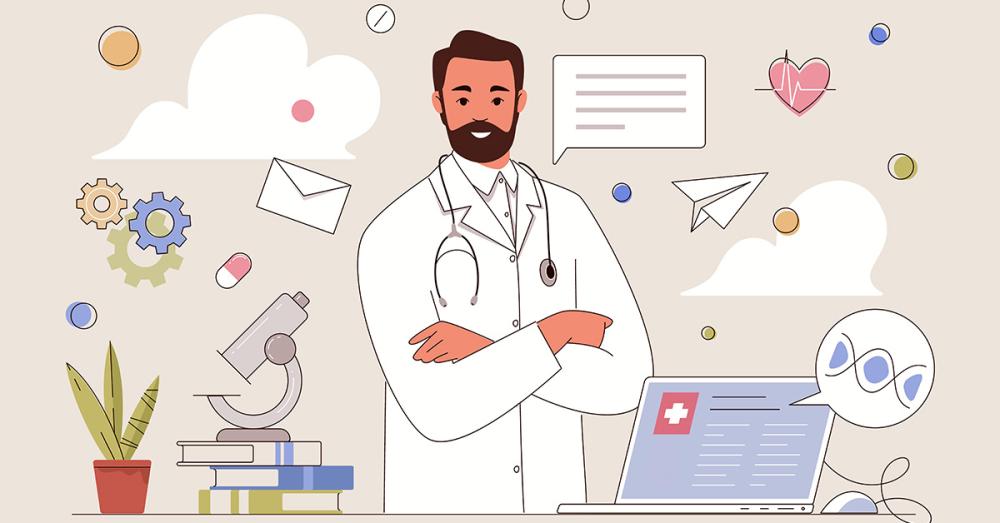Attn: Healthcare Professionals. This is not about us; it's about people who are suffering.
June 11 2024

Recently, I spoke with a knowledgeable colleague who shared a troubling story. In a professional massage Facebook group, an educator demonstrated a dangerously intensive technique involving compressing and massaging the carotid artery's sinuses. My friend commented, warning that this technique is dangerous and contraindicated. As a result, the group admin blocked my friend, stating, "You cannot criticize an internationally renowned educator publicly. If you disagree, you should contact him privately to avoid hurting his feelings."
Dear friends, really? I cannot care less about hurting feelings in such cases. What if massage therapists learn the wrong technique and jeopardize patients' lives? Should we be more concerned about “hurting feelings”?
The behavior of this admin is outrageous and wrong by all means. I would like to ask this admin and the renowned educator: What if you or a family member received a massage involving this dangerous technique and it stopped your/her/his heart? Would it be okay if my friend only spoke to the educator privately? Would the members of this group learn about this dangerous wrongdoing? Would it be okay if you or a loved one died from this mistake?
The phrase "This is not about us; it's about people who are suffering" has deep meaning. Public professional discussions allow us to advance our skills and warn against dangerous teachings.
Those who follow my writings know that I am a big believer in the power of discussions. We should offer our opinions, share our experiences, and vigorously defend our positions, as my friend did. No matter how famous educators are, if you feel the need to challenge them, then challenge them. If you disagree, post your disagreement. If you agree, encourage others to post their support. As I said, “This is not about us; it's about people who are suffering.”
Advancing our skills also means being informed enough not to allow slogans to distract us from being effective massage therapists and improving our therapy techniques.
For over 30 years, I have practiced in the United States. There was a destructive and divisive attempt to separate the massage therapy community into "advanced" and "less advanced" therapists. During public discussions, I demanded a clear definition of "advanced." When I directly asked for this definition, those claiming the title of "advanced" disappeared in silence. The "advanced massage therapists" movement eventually quieted down, and possible perhaps because of my challenging questions. It was a very destructive time for massage therapists.
Then came the “neuroscientific revolution,” where anyone who questioned their views was aggressively attacked. One of these so-called "scientific revolutionaries" loudly declared that the only thing that could save massage therapy was meta-analysis training.
Years ago, Mike Hinkle of the World Massage Festival asked a simple question: “You are a clinical psychologist. What makes you think you can teach massage therapists how to advance our skills?” This question helped suppress the destructive movement because it informed members of the community. This is what discussion is about.
Then an Australian PT declared, “Everything we knew before is wrong. Medical textbooks are lying to us.” He claimed there were no pain receptors and that the medical community was lying. He promised to reveal the truth for a fee. Only a few, including myself, Dr. Ross, and Dr. Michael Koplen, challenged this nonsense in public discussions, educating based on scientific facts. Some educators publicly supported this nonsense, even participating in these seminars, which is shameful.
Then came the Fascia Congress at Harvard University. You can rent space and advertise your seminar there if you have enough money. This event was marked by a mob mentality. People spent thousands of dollars to attend. If these massage therapists had been informed about the history and established techniques of connective tissue massage/fascia release, they wouldn't have been distracted from developing their skills to help those suffering.
Open professional discussions give us the opportunity to be informed, prevent distractions, and focus on developing our skills. I highly recommend participating in professional discussions, challenging when you disagree, and remembering that even internationally renowned educators can be wrong. Massage therapy is not a religious cult where the leader's word is absolute. It is a healthcare field where educators and professors of medicine can be questioned. Professional discussion is a great tool to learn.
As always, I encourage you to challenge, ask questions, agree or disagree.
Best wishes, Boris Prilutsky
Add New
Comments
no comments found
Recents Posts
February 16 2026
Medical Massage in Cases of Long COVID and Chronic Stress–Related Disorders – Part 2
January 25 2026
If you don’t know how to do something, then don’t do it
January 19 2026
Chronic Stress and Autoimmune Diseases
January 12 2026
Discover the Magic That Happens When Science Meets Touch





